




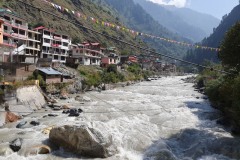

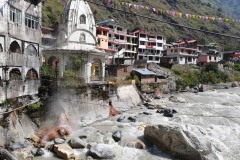

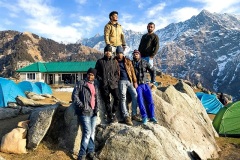
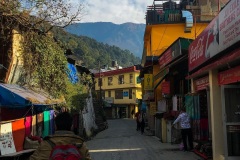



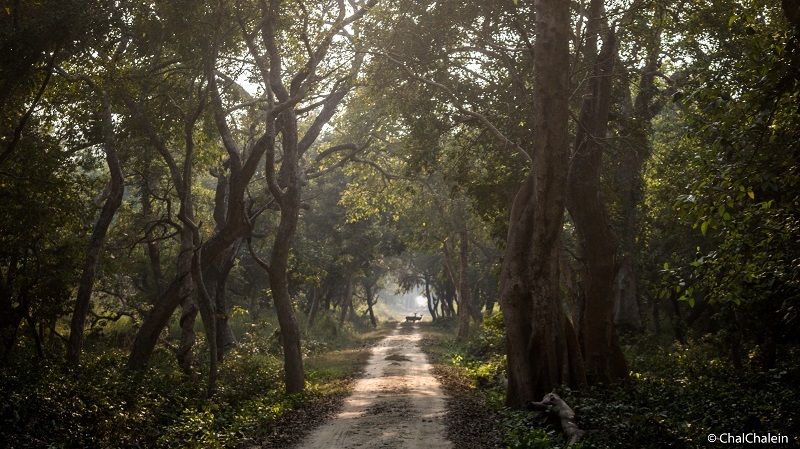
The charming wildlife attraction Dudhwa National Park, also called Dudhwa Tiger Reserve, is tucked away in the center of India. Dudhwa, which is well-known for its abundant biodiversity and breathtaking scenery, captivates both environment lovers and wildlife aficionados. The name of the Dudhwa Tiger Reserve is also well-known.
Founded in 1977, Dudhwa National Park is a protected area located in the Indian state of Uttar Pradesh. Situated near the Indo-Nepal border in the Lakhimpur Kheri district, the park spans 490 square kilometers.
The British rulers of India utilized the region as a hunting ground at the beginning of the 20th century, which is when Dudhwa National Park got its start. The Uttar Pradesh government designated the region as a wildlife sanctuary in 1958 in an effort to save the endangered swamp deer population.
A wide variety of animals, including tigers, leopards, elephants, sloth bears, and more than 450 different species of birds, may be found in Dudhwa National Park today. The park’s distinct environment, which consists of dense forests, wetlands, and grasslands, is another well-known feature.
Restoration of habitat and the reintroduction of a number of endangered species, such as the swamp deer and the barasingha, a deer species that was previously in danger of going extinct, are two examples of conservation work at Dudhwa National Park. The park has also received recognition for its ecotourism programs, which help the local economy and encourage environmentally conscious travel while protecting the surrounding area.
A protected area in Uttar Pradesh, India’s Terai region is called Dudhwa Tiger Reserve. It was founded in 1988 and encompasses 1,284 square kilometers, which includes Kishanpur Wildlife Sanctuary and Dudhwa National Park. With a variety of flora and animals, including the Bengal tiger, Indian rhinoceros, swamp deer, leopard, and many others, the reserve is renowned for its vast biodiversity.
Popular tourist location Dudhwa National Park is renowned for its stunning meadows, deep forests, and sources of water. Safaris are available for visitors to ride around the park in order to see wildlife and take in the scenery. Another well-liked destination is the Kishanpur Wildlife Sanctuary, which is renowned for its wide variety of bird species.
The endangered animals that live in the Dudhwa Tiger Reserve are being protected, making it a significant conservation area. Additionally, the reserve strives to support ecotourism as a sustainable form of development and raise the standard of living for the local populace.
Dudhwa National Park has been separated into five zones to encourage tourism in the area. These are the designated core sections or buffers within the park where guests can participate in a wildlife safari and observe the fascinating behavior of the animals up close.
Dudhwa Safari Zone: Due to its vast grasslands and abundance of natural beauty, Dudhwa Zone is a highly sought-after tourist destination. The town of Palia Kalan is the closest.
Sonaripur Safari Zone: Sonaripur is the second tourist entrance gate and is located in Dudhwa. Rhinos are well-known in this area. It is the Dudhwa Tiger Reserve’s rhino conservation section.
Kishanpur Safari Zone: Open to visitors at the same time as Dudhwa National Park, Kishanpur is another significant tourist destination. Mailani is the town closest to us.
The Katarniaghat Safari Zone is well-known for its untamed grasslands, boating, tigers, dolphins, and crocodiles. It is yet another well-liked location.
Chuka Tiger Reserve: Part of Dudhwa Tiger Reserve, it is also referred to as Pilihit Tiger Reserve. Pilibhit is the town area closest to you.
The months of November through May are the ideal times to visit Dudhwa National Park. The park is nevertheless accessible to the general public from November 15 to June 15, even if May and June are a bit too hot for comfort. It’s important to pack warm clothing for your winter visits to the Park because the weather can turn frigid, especially from December to February.
Dudhwa National Park provides Morning and Afternoon Safari experiences that let you see the fascinating wildlife in its native environment.
Early Safari: This type of safari begins at first light and provides the finest opportunity to see animals in their most active hours. Seasonal variations may cause modest variations in timings.
Winter: 6.30 a.m. to 10:00 a.m., November 1 to March 31
Summer: April 1 through June 15 from 6:00 a.m. to 9:30 a.m.
Afternoon Safari: This type of safari usually starts early in the afternoon and lasts until dusk. Additionally, this session offers a great chance to watch animals in action as they get ready for the night.
Winter: from November 1 to March 31 2.30 p.m. until dusk
Summer: April 1st to June 15th, 3:30 p.m. until dusk
Dudhwa has a range of lodging choices, such as outdoor eco-resorts and forest lodges. It is best to make reservations in advance to guarantee a comfortable stay in the middle of the woods, especially during the busiest travel seasons.
Use the official website of Dudhwa to make online booking https://upecotourism.in/DudhwaNationalPark.aspx
You can travel by car, train, or aircraft to get to the Dudhwa National Park. The closest airport is in Lucknow, but the Dudhwa Railway Station is located nearby, around 4 km away. To go to the national park, one can take a taxi from the airport or the train station. It will take approximately eight to nine hours to drive from Delhi to the national park, or three hours if one takes the rail to Shahjehanpur. It is also possible to travel to Lucknow first, then proceed to Dudhwa, which is located about 245 km from Lucknow.
1. Visit the refuge only after securing a verified hotel reservation. 2. Acquire the necessary authorization to enter the sanctuary and adhere to all regulations. 3. Go slowly through the area to get a better look of the animals and to avoid upsetting or endangering it4. Stay on the trails; going off course puts you and the wildlife in jeopardy. 5. Enjoy the beauty of seeing wildlife, but avoid putting yourself in risk by being daring. 6. Take pictures with a camera, but don’t bring a gun into the sanctuary. 7. Enjoy the sounds of nature’s melody instead of listening to music within the sanctuary.
8. Avoid smoking inside of forests.
9. Keep in mind that this is not a zoo and you won’t see animals around. 10. Take in the other natural treasures and enjoy your trip instead of focusing solely on the tigers.